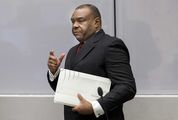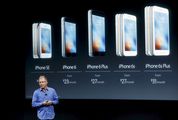THE decision by former acting prosecutions head Mokotedi Mpshe to drop corruption charges against President Jacob Zuma was taken "impulsively" and without giving enough cosnsideration to how strong and important the case was, said counsel for the Democratic Alliance (DA) in court on Tuesday.
Tuesday was the first day of the DA’s long-anticipated legal challenge to the 2009 decision to drop 783 counts of fraud, corruption and racketeering against Mr Zuma. The DA wants the court to set aside Mr Mpshe’s decision as irrational in law, reopening the possibility that he may be charged.
Counsel for the DA, Sean Rosenberg SC, said rationality had to be evaluated by looking at the reasons Mr Mpshe himself gave for discontinuing the prosecution.
When Mr Mpshe announced his decision he based it on what an "abuse of process" that he said had been laid bare in the spy-tapes — recordings of phone conversations between former prosecutions head Bulelani Ngcuka and former Scorpions head Leonard McCarthy. The tapes revealed manipulation of the timing of the indictment against Mr Zuma — in order to influence the watershed Polokwane elective congress of the African National Congress (ANC) in 2007.
Mr Mpshe referred to a number of court cases, local and international, and concluded that the abuse of the process revealed in the spy tapes was "so gravely wrong" and such a "gross neglect of the elementary principles of fairness", that it would be "unconscionable" for a trial to continue.
But referring to the same court cases cited by Mr Mpshe, Mr Rosenberg said for a court to set aside a prosecution for abuse of process, there needed to be a "weighing up of policy and justice".
It was not enough for there to have been abuse, there must also be a link between the abuse and the prosecution in order to justify a stay of prosecution, he said.
Mr Mpshe’s reasons reflected "his own sense of betrayal and outrage" over Mr McCarthy’s conduct, said Mr Rosenberg. But the decision was not rational because he had failed to consider whether the abuse had affected the fairness of the prosecution or the administration of justice.
He had not considered the factors that would support the continuation of a corruption case "of this magnitude and duration".
"Fairness and justice hardly entered into it," he said.
In response to questions from the bench, Mr Rosenberg said there was no evidence that the manipulation of the timing of the prosecution had been prejudicial to Mr Zuma, nor that it had tainted the evidence against Mr Zuma.
Earlier Mr Rosenberg argued that when the spy tapes were looked at closely, Mr McCarthy’s machinations on the timing of the indictment in fact "bore little significance" to the prosecution itself.

Jacob Zuma. Picture: EPA/NIC BOTHMA
THE decision by former acting prosecutions head Mokotedi Mpshe to drop corruption charges against President Jacob Zuma was taken "impulsively" and without giving enough cosnsideration to how strong and important the case was, said counsel for the Democratic Alliance (DA) in court on Tuesday.
Tuesday was the first day of the DA’s long-anticipated legal challenge to the 2009 decision to drop 783 counts of fraud, corruption and racketeering against Mr Zuma. The DA wants the court to set aside Mr Mpshe’s decision as irrational in law, reopening the possibility that he may be charged.
Counsel for the DA, Sean Rosenberg SC, said rationality had to be evaluated by looking at the reasons Mr Mpshe himself gave for discontinuing the prosecution.
When Mr Mpshe announced his decision he based it on what an "abuse of process" that he said had been laid bare in the spy-tapes — recordings of phone conversations between former prosecutions head Bulelani Ngcuka and former Scorpions head Leonard McCarthy. The tapes revealed manipulation of the timing of the indictment against Mr Zuma — in order to influence the watershed Polokwane elective congress of the African National Congress (ANC) in 2007.
Mr Mpshe referred to a number of court cases, local and international, and concluded that the abuse of the process revealed in the spy tapes was "so gravely wrong" and such a "gross neglect of the elementary principles of fairness", that it would be "unconscionable" for a trial to continue.
But referring to the same court cases cited by Mr Mpshe, Mr Rosenberg said for a court to set aside a prosecution for abuse of process, there needed to be a "weighing up of policy and justice".
It was not enough for there to have been abuse, there must also be a link between the abuse and the prosecution in order to justify a stay of prosecution, he said.
Mr Mpshe’s reasons reflected "his own sense of betrayal and outrage" over Mr McCarthy’s conduct, said Mr Rosenberg. But the decision was not rational because he had failed to consider whether the abuse had affected the fairness of the prosecution or the administration of justice.
He had not considered the factors that would support the continuation of a corruption case "of this magnitude and duration".
"Fairness and justice hardly entered into it," he said.
In response to questions from the bench, Mr Rosenberg said there was no evidence that the manipulation of the timing of the prosecution had been prejudicial to Mr Zuma, nor that it had tainted the evidence against Mr Zuma.
Earlier Mr Rosenberg argued that when the spy tapes were looked at closely, Mr McCarthy’s machinations on the timing of the indictment in fact "bore little significance" to the prosecution itself.




















Change: 1.19%
Change: 1.36%
Change: 2.19%
Change: 1.49%
Change: -0.77%
Data supplied by Profile Data
Change: -0.08%
Change: 0.12%
Change: 1.19%
Change: 0.00%
Change: 0.10%
Data supplied by Profile Data
Change: 0.36%
Change: 0.38%
Change: 0.52%
Change: 0.44%
Change: 0.46%
Data supplied by Profile Data
Change: 0.22%
Change: -0.31%
Change: 0.06%
Change: -0.33%
Change: 0.17%
Data supplied by Profile Data